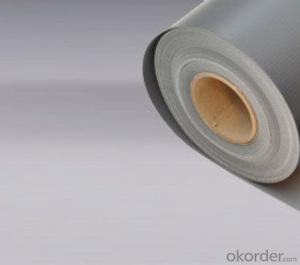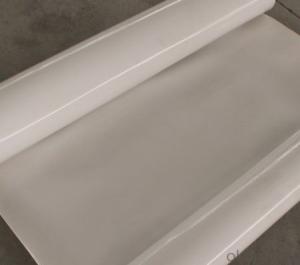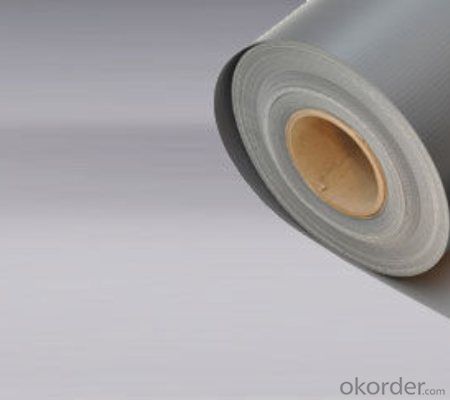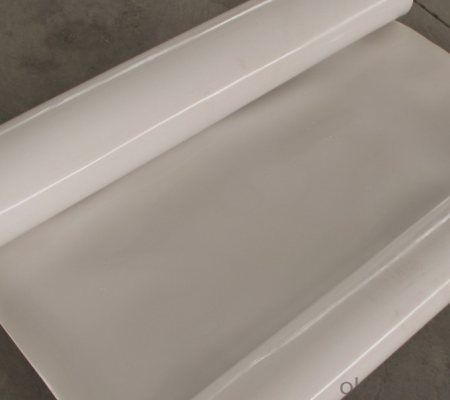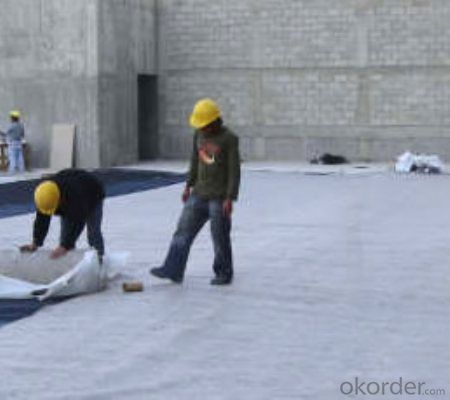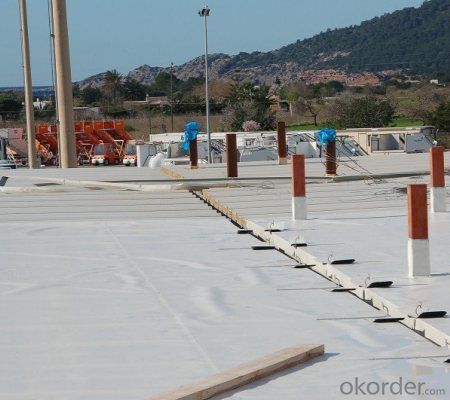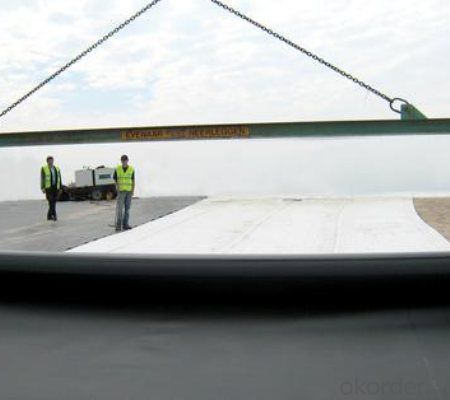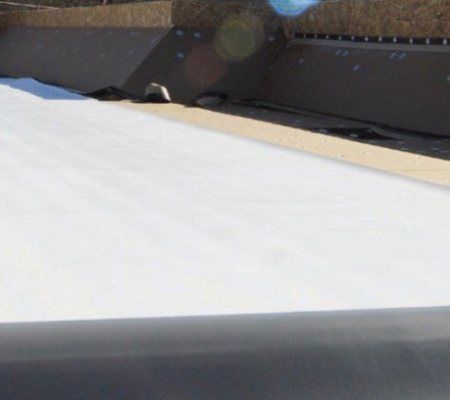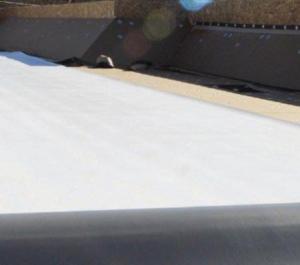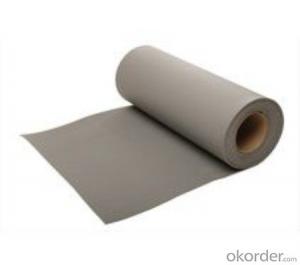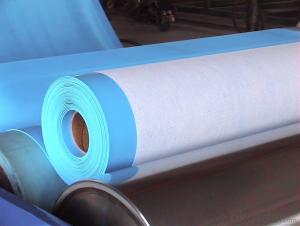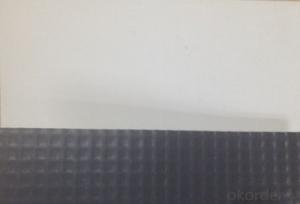TPO Membrane glaze for Waterproof System
- Loading Port:
- Qingdao
- Payment Terms:
- TT OR LC
- Min Order Qty:
- 13000 m²
- Supply Capability:
- 100000 m²/month
OKorder Service Pledge
OKorder Financial Service
You Might Also Like
TPO Membrane glaze for Waterproof System
Description Of TPO Membrane glaze for Waterproof System
1.TPO Membrane glaze is made from Thermoplastic polyethylene hydrocarbons , which is for waterproofing of exposed and non-exposed applications.
2. TPO Membrane glaze adopts the world-advanced equipment of cold feeding extrusion and continuous vulcanization technology.
3. TPO Membrane glaze is of high elasticity among high polymer waterproof materials and becomes a world-popular waterproofing material.
Main Features of TPO Membrane glaze for Waterproof System
1. Excellent physical and mechanical performance
2. High tearing resistance
3. Good deformation adaptability
Specifications of TPO Membrane glaze for Waterproof System
Material | Thermoplastic polyethylene hydrocarbons |
Size | 1.2m (width)*20m (length) or customized, weldable type 2.05m |
Thick | 1.2mm, 1.5mm, |
Applications of TPO Membrane glaze for Waterproof System
1.Roofs, Basement
2. Industrial and civil building waterproofing
3. Geosynthetic liner for swimming pool, channels, irrigation system
IMages of TPO Membrane glaze for Waterproof System
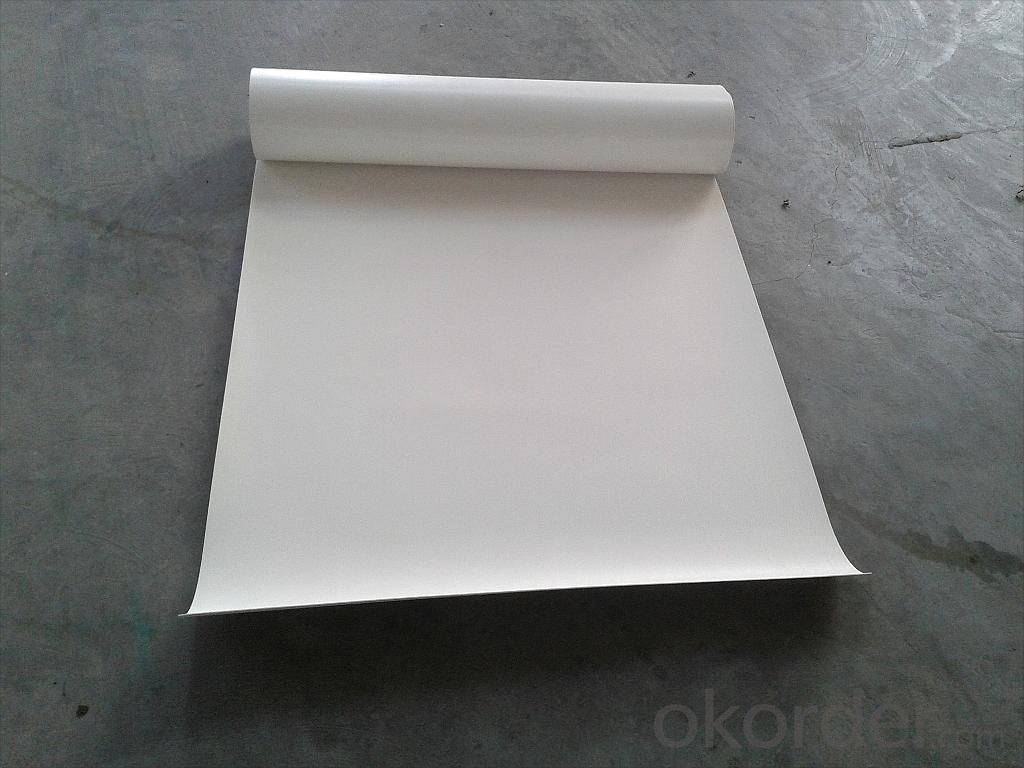
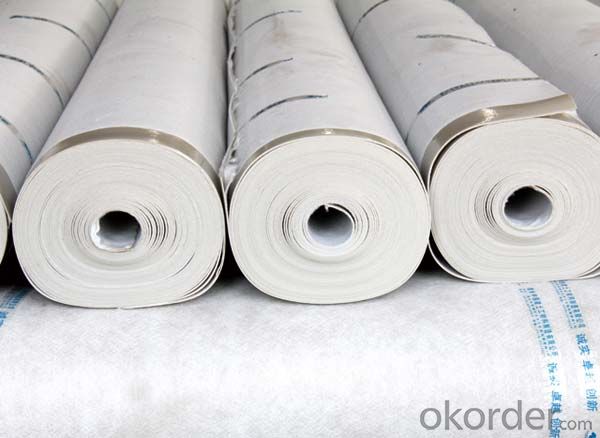
FAQ:
1. What are we supplying?
We are specialized in producing Colorful Asphalt Roof Shingle, SBS/APP modified bitumen waterproof membrane, Self adhesive bitumen waterproof membrane, PVC waterproofing membrane,Single Component Polyurethane Waterproof Coating, and Spray Polyurea Waterproof Coating
.
2. How Many years experience do we have?
We have been exported to more than 15 countries in the past 14years.
3. How long do we usually reply your request?
We always reply our customer within 4 hours.
- Q: Can a waterproofing membrane be used in conjunction with tile or stone installations?
- Yes, a waterproofing membrane can be used in conjunction with tile or stone installations.
- Q: Does a waterproofing membrane prevent water infiltration through concrete?
- Yes, a waterproofing membrane can prevent water infiltration through concrete. A waterproofing membrane is a material that is applied to the surface of concrete structures to create a barrier against water penetration. It is designed to be impermeable to water and to provide a protective layer that seals the concrete surface. When properly installed, the waterproofing membrane can effectively prevent water from seeping through the concrete, thereby protecting the structure from water damage and potential structural issues. However, it is important to note that the effectiveness of a waterproofing membrane depends on the quality of the materials used, the installation process, and the maintenance of the membrane over time.
- Q: Are waterproofing membranes resistant to thermal cycling?
- Yes, waterproofing membranes are generally resistant to thermal cycling. These membranes are designed to withstand changes in temperature without losing their effectiveness. Thermal cycling refers to the repeated expansion and contraction of materials due to temperature fluctuations. Waterproofing membranes are engineered to have excellent dimensional stability, which means they can expand and contract with minimal deformation. This resistance to thermal cycling ensures that the membranes maintain their integrity and prevent water penetration, even in extreme temperature conditions. However, it is important to note that the specific resistance to thermal cycling can vary depending on the type and quality of the waterproofing membrane used.
- Q: Can a waterproofing membrane be used for roofing?
- Yes, a waterproofing membrane can be used for roofing. Waterproofing membranes are commonly used in roofing systems to prevent water infiltration and protect the structure from leaks and water damage. They provide a durable and long-lasting solution for ensuring the roof's waterproofing capabilities.
- Q: Can a waterproofing membrane be used for underground parking garages?
- Yes, a waterproofing membrane can be used effectively for underground parking garages. These membranes are specifically designed to provide a protective barrier against water infiltration, preventing damage to the structure and ensuring a dry and safe environment for vehicles.
- Q: Does a waterproofing membrane have any impact on the thermal performance of a structure?
- The thermal performance of a structure can be influenced by a waterproofing membrane. Usage of a waterproofing membrane is common in buildings to prevent water infiltration, which can harm the structure over time. By creating a barrier against moisture, the membrane helps maintain the building envelope's integrity and safeguards against potential leaks or water damage. Regarding thermal performance, a waterproofing membrane can enhance insulation by reducing heat transfer through the building envelope. By preventing moisture from entering the structure, the membrane also prevents condensation formation, which can lead to mold growth and further damage to building materials. Moreover, certain waterproofing membranes are designed with additional insulation properties, such as foam or reflective coatings, which further improve a structure's thermal performance. These membranes decrease thermal bridging and enhance energy efficiency by minimizing heat loss or gain through the building envelope. It should be noted that the impact of a waterproofing membrane on a structure's thermal performance can vary depending on the specific type of membrane, its installation, and the overall building design. Consulting a professional architect or engineer is advisable to determine the most suitable waterproofing solution that meets both water resistance and thermal performance requirements for a particular structure.
- Q: Can a waterproofing membrane be used in geotechnical applications?
- Indeed, geotechnical applications can make effective use of waterproofing membranes. These membranes are commonly employed to safeguard structures against water infiltration and are applied to various surfaces such as roofs, basements, and foundations. In geotechnical applications, these membranes serve the purpose of preventing water from seeping into the soil, thus averting erosion and stabilizing slopes. They can be positioned either horizontally or vertically to establish a barrier that hinders water penetration, which proves particularly advantageous in retaining walls, embankments, and dams. Furthermore, waterproofing membranes can be used to regulate water flow and enhance drainage in geotechnical projects. All in all, incorporating a waterproofing membrane into geotechnical applications can significantly enhance the longevity and performance of structures while effectively safeguarding them against water-related issues.
- Q: Can a waterproofing membrane be used for shower or bathroom installations?
- Certainly, shower or bathroom installations can absolutely utilize a waterproofing membrane. In fact, it is highly advisable to employ a waterproofing membrane in these particular areas in order to avert water damage and leakage. A waterproofing membrane is a thin substance that is administered to the walls, floors, and even ceilings of showers and bathrooms, serving as a barrier against moisture. This membrane functions as an impervious shield, preventing water from permeating through the tiled surfaces and infiltrating the underlying structures, such as the walls or subfloor. By implementing a waterproofing membrane, you can guarantee that your shower or bathroom remains impervious to water and shielded against water damage, mold growth, and potential structural complications. It is crucial to adhere to the manufacturer's instructions and guidelines during the installation of a waterproofing membrane to ensure its efficacy and longevity.
- Q: Can a waterproofing membrane be used for a fountain?
- Yes, a waterproofing membrane can be used for a fountain. Waterproofing membranes are designed to create a protective barrier against water, making them suitable for fountains to prevent leakage and maintain the structural integrity of the fountain.
- Q: Can a waterproofing membrane be used for parking garages?
- Yes, a waterproofing membrane can be used for parking garages. A waterproofing membrane is a protective layer that is applied on surfaces to prevent water penetration. In parking garages, it is essential to have effective waterproofing to protect the structure from water damage, such as corrosion of steel reinforcement and deterioration of concrete. Parking garages are exposed to various sources of water, including rain, snow, and vehicle fluids, which can seep through cracks and joints. A waterproofing membrane acts as a barrier, preventing water from infiltrating the structure and causing damage. There are different types of waterproofing membranes available for parking garages, including sheet membranes, liquid-applied membranes, and cementitious coatings. These membranes can be applied on horizontal and vertical surfaces, such as floors, walls, and ramps, to create a watertight seal. When selecting a waterproofing membrane for a parking garage, factors such as durability, flexibility, and resistance to chemicals should be considered. The membrane should be able to withstand the heavy loads and traffic conditions typically found in parking garages. Overall, using a waterproofing membrane in parking garages is crucial to protect the structure and extend its lifespan by preventing water-related damage. It helps maintain the structural integrity and aesthetics of the garage while ensuring a safe and functional environment for users.
Send your message to us
TPO Membrane glaze for Waterproof System
- Loading Port:
- Qingdao
- Payment Terms:
- TT OR LC
- Min Order Qty:
- 13000 m²
- Supply Capability:
- 100000 m²/month
OKorder Service Pledge
OKorder Financial Service
Similar products
Hot products
Hot Searches
Related keywords
